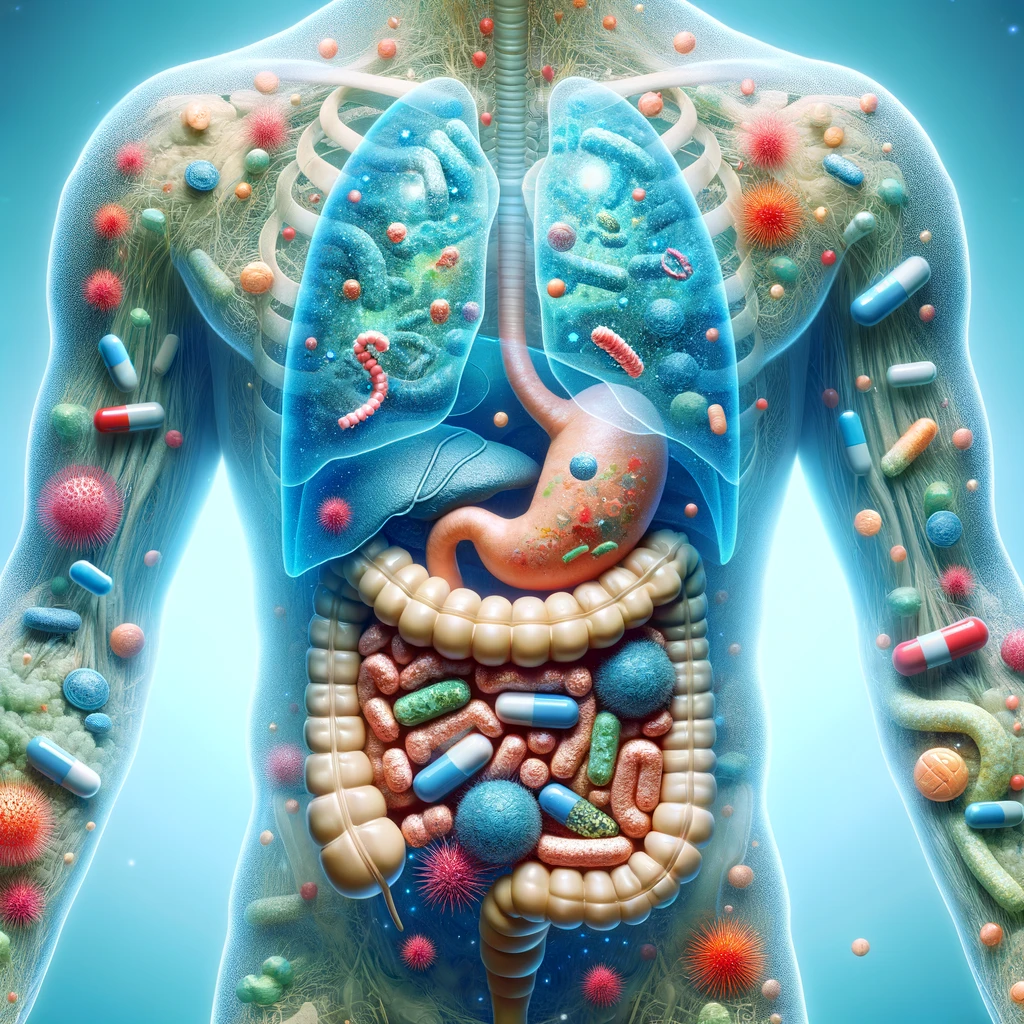In the ever-evolving narrative of human health, a hidden storyline is unfolding—one that intertwines our well-being with the billions of microbial inhabitants residing in our gut. This microscopic ecosystem, known as the gut microbiome, plays a pivotal role in our overall health, affecting everything from digestion to immunity. However, a relatively overlooked factor is shaping this delicate balance: the widespread use of common medications. This blog post delves into the profound impact that drugs like proton pump inhibitors (PPIs), metformin, and other non-antibiotic medications have on the gut microbiome, shedding light on a topic of critical importance yet often hidden in plain sight.
Proton Pump Inhibitors: A Double-Edged Sword
Proton pump inhibitors (PPIs), such as pantoprazole and omeprazole, have revolutionized the treatment of acid-related disorders. Their ability to effectively reduce stomach acid has made them a go-to solution for conditions like peptic ulcers and gastroesophageal reflux disease. Yet, despite their efficacy and seemingly favorable safety profile, recent research suggests that their impact extends far beyond the stomach, reaching into the depths of our gut microbiome.
The Ripple Effect of PPIs on Microbial Diversity
A landmark study from the Netherlands has unveiled a startling connection between PPI usage and significant alterations in the gut microbial landscape. Users of PPIs exhibited a decreased diversity in their gut microbiome, alongside taxonomical shifts that favor the proliferation of oral bacteria within the gut. This phenomenon, known as “oralization,” leads to an increase in bacteria families such as Enterobacteriaceae and a decrease in beneficial ones like Ruminococcaceae. The implications of these changes are profound, as they can diminish the gut’s resistance to harmful infections and contribute to the development of diseases.
Long-term Consequences: A Cause for Concern
While the short-term side effects of PPIs might be manageable, the long-term implications of altered gut microbiota are a growing concern. Studies have linked PPI-induced microbial changes to an increased risk of infections like Clostridium difficile and a potential influence on serious conditions such as liver cirrhosis and childhood obesity. These findings underscore the need for a cautious approach to PPI prescription, emphasizing evidence-based use and reconsideration of their over-the-counter availability.
Metformin: Beyond Blood Sugar Control
Metformin stands as a cornerstone in the management of type 2 diabetes, praised for its blood glucose-lowering capabilities. Yet, its mechanism of action extends beyond the pancreas and liver, reaching into the gut microbiome. Intriguingly, metformin not only alters the microbial composition, enhancing the presence of certain bacteria beneficial for glucose metabolism but also brings to light the interconnectedness of our gut flora and the medications we consume.
Metformin and Microbial Metamorphosis
Recent studies have illuminated metformin’s capacity to induce a shift in the gut microbiome, elevating species like Escherichia coli while diminishing others. This transformation is believed to play a part in the drug’s therapeutic effects, as well as in the gastrointestinal side effects experienced by some patients. The evidence suggests a direct link between metformin’s impact on the microbiome and its efficacy in managing diabetes, offering a fascinating glimpse into the drug’s multifaceted mode of action.
The Broader Spectrum: Other Medications and the Microbiome
The influence of medications on the gut microbiome is not limited to PPIs and metformin. A wide array of commonly used drugs, including laxatives, statins, antidepressants, and opioids, has been shown to alter microbial communities. These changes can have both immediate and lasting effects on our health, emphasizing the critical need for a holistic approach to medication use and its oversight.
Laxatives and the Gut: A Delicate Balance
The use of laxatives, for instance, illustrates the complex relationship between medications and gut health. While designed to alleviate constipation, laxatives can induce shifts in the gut microbiome that may lead to long-term changes in intestinal function and immune responses. Such findings highlight the importance of understanding the broader consequences of our medication choices, beyond their immediate therapeutic goals.
Towards a Balanced Perspective on Medication Use
As we continue to unravel the complex interactions between common medications and the gut microbiome, it becomes increasingly clear that a balanced perspective is essential. While drugs like PPIs and metformin offer undeniable benefits for treating specific conditions, their widespread and often indiscriminate use warrants a reassessment. The emerging evidence calls for a more judicious approach to prescribing these medications, taking into account their potential impact on the gut microbiome and, by extension, on our overall health.
